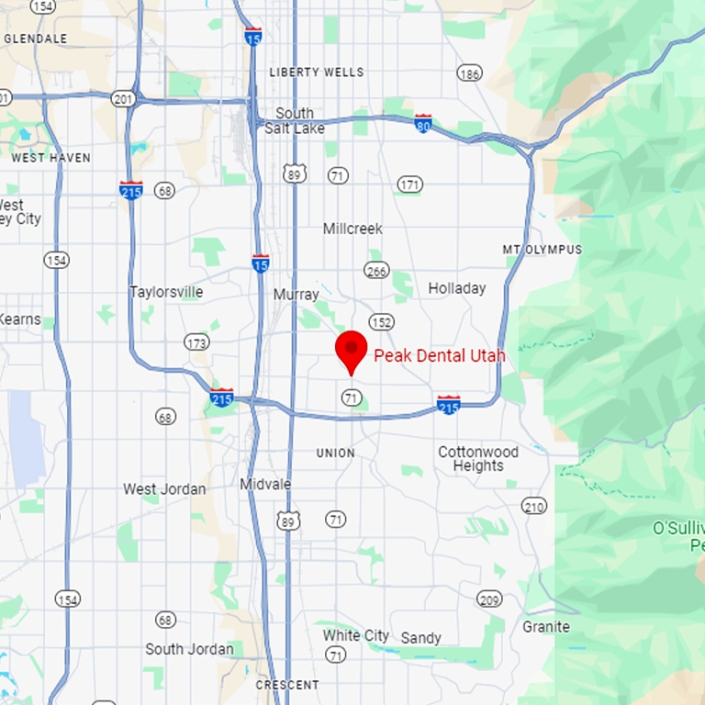Snoring

Most people know someone who snores. While this common occurrence usually isn’t reason for concern, sometimes it can indicate an underlying health problem, such as sleep apnea. If snoring becomes louder or it significantly impacts your quality of sleep, then it may be time to visit a sleep specialist. To work with the top sleep doctor in Murray, UT, contact the experts at Dr. Jeff Buxton today! Our team can work to determine if sleep apnea or another condition is getting in the way of your life. Then, we’ll provide trusted treatments to help you find relief. Your sleep quality is our top priority! Reach out to us today for the most reliable snoring treatment in Murray, UT.
Snoring: Brief Overview
Snoring occurs when air has trouble finding its way through your nose or mouth while you sleep. While minor snoring isn’t usually a problem, snoring that becomes loud and more frequent could indicate a health condition. Also, it’s something you’ll want to have checked out. Chronic snoring can make you more prone to developing serious health problems, like a stroke or heart attack.
Snoring sounds can vary from one person to the next. However, snoring typically sounds like quiet vibrations, snorting, rumbling, and even whistling. People who snore may also wake up with a dry mouth or headache, and they might feel irritable.
Causes of Snoring
Snoring is caused by a partial blockage in your airway. While anyone can develop a snoring problem, it’s more common as we age. Furthermore, alcohol and sedative use is associated with more snoring issues.
Take a look at even more snoring risk factors below:
- Family history of snoring
- Poor health status
- Specific anatomy
- Weight
While snoring isn’t always bad, it can cause long-term issues. If you notice that your snoring gets in the way of your sleep, speak with your doctor about the next steps. They may recommend visiting a sleep clinic, such as Dr. Jeff Buxton!
Diagnosing a Snoring Problem
When you visit a doctor regarding your snoring, they will ask you certain questions and perform a physical examination. They will take a look at your nose, mouth, and throat to check for any signs of concern. These specialists will ask how long you’ve been snoring and if you notice any troubling symptoms.
If your doctor detects something could be wrong, they may suggest undergoing a sleep study. This is a testing process that examines the following while you sleep:
- Breathing patterns
- Oxygen levels
- Brain wave activity
- Heart rate
- Movements during sleep
- Sleep cycles
Understanding this information should give doctors a good indication of whether you have a sleep condition or not.
Snoring Treatment
Luckily, there are some tried and trusted solutions for snoring. This includes lifestyle changes, nonsurgical remedies, and surgical treatments. If you’re looking to stop your snoring for good, consider the following treatment options:
Lifestyle Changes
Sometimes, something as simple as changing sleep positions can be all it takes to fix a snoring problem. Experts suggest sleeping on your side to reduce snoring. You can also try elevating your head, which can help open your airways. If your snoring continues, consider other lifestyle changes, such as limiting alcohol before bed and maintaining a healthy weight.
Nonsurgical Options
For another dependable treatment option, consider taking over-the-counter cold and allergy medicine. These help to reduce nasal congestion, which can keep your airways clear and open. This medicine can be especially useful if you have allergies.
Nasal strips are another great option. These products are designed to stick to your nose and lift up your nasal passages.
One of the most effective nonsurgical treatments is a special oral appliance called a mouth guard or night guard. These are custom-made to fit over your teeth and move your jaw to the correct position as you sleep.
Surgical Procedures
If your snoring is serious and it’s impacting your everyday life, surgery may be the answer. Surgery aims to shrink or remove excess tissue to help you breathe properly during sleep. On some occasions, correcting a deviated septum may also help.
Here are the surgical procedures used to treat snoring:
- Laser-assisted uvulopalatoplasty (LAUP)
- Ablation therapy
- Septoplasty
- Tonsillectomy or adenoidectomy
Please note that these surgical treatments are only intended for severe cases of snoring. Many snoring issues can be solved with lifestyle changes and nonsurgical efforts.
Long-Term Snoring Risks
You may not be worried about the future if you only have a minor snoring issue. However, it’s important to know that long-term snoring increases your risk of certain health issues, including:
- Cognitive impairment
- Hypoxia, or low blood oxygen levels
- Fatigue
- High blood pressure
- Heart attack
- Stroke
- Type 2 diabetes
Given these risks, you shouldn’t wait to see a doctor about your snoring troubles! Early detection is essential.
Snoring Treatment at Dr. Jeff Buxton
Dr. Jeff Buxton is your destination for top-of-the-line snoring treatment in Murray, UT. We can run various tests to determine if your snoring is caused by an underlying sleep disorder. If we do find signs of a sleep condition, we’ll provide you with trusted treatment options. Call us today to make an appointment!

